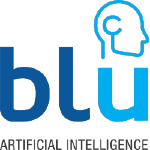
Ethical AI: Building Trust and Transparency in Corporate AI Initiatives
In an era where Artificial Intelligence (AI) is becoming a [...]
In an era where Artificial Intelligence (AI) is becoming a cornerstone of corporate innovation, ethical considerations have emerged as critical to sustainable and responsible AI deployment. This article delves into the significance of ethical AI in business, focusing on data privacy, algorithmic fairness, and the strategies corporations can employ to foster transparency and trust with stakeholders.
The Importance of Ethical AI in Business
Ethical AI is about ensuring that AI technologies are developed and used in a manner that is fair, accountable, and devoid of bias. It involves:
- Data Privacy: Safeguarding sensitive information and ensuring that data collection and processing are transparent and consent-driven.
- Algorithmic Fairness: Developing AI systems that are impartial and do not perpetuate biases or discrimination.
- Transparency: Making AI processes understandable to stakeholders to ensure that AI decisions can be explained and justified.
Navigating the Ethical Landscape
Corporations can navigate the ethical AI landscape by:
- Establishing Clear Guidelines: Developing and implementing comprehensive policies that outline ethical AI practices, including data handling, bias mitigation, and stakeholder engagement.
- Promoting Transparency: Ensuring that AI algorithms and their workings are understandable and open to scrutiny, which can help build trust with customers, employees, and regulators.
- Engaging in Continuous Learning: Staying informed about the latest developments in AI ethics and incorporating these insights into AI strategies and operations.
Case Studies of Ethical AI in Practice
Examples of corporations leading the way in ethical AI include:
- Accenture: Implemented a robust framework for responsible AI, focusing on fairness, accountability, and transparency in AI systems.
- IBM: Developed AI ethics principles and tools like AI Fairness 360 to detect and mitigate bias in AI models.
Future Trends in Ethical AI
The future of ethical AI in business is likely to be shaped by:
- Regulatory Evolution: As governments and international bodies introduce more regulations, companies will need to align their AI initiatives with legal and ethical standards.
- Advancements in Explainable AI (XAI): Technologies that provide clearer insights into AI decision-making processes will become increasingly important.
- Stakeholder Empowerment: Businesses will need to involve a broader range of stakeholders in the development and oversight of AI projects.
Ethical AI is not just a regulatory requirement but a strategic business imperative that builds long-term trust and sustainability. By prioritizing ethical considerations in AI deployment, corporations can lead the way in responsible technology use and gain a competitive edge.
Is your organization ready to lead with ethical AI? Blu Artificial Intelligence can help you build trust and transparency in your corporate AI initiatives. Contact us to learn more about integrating ethical AI practices into your business strategy.
Share this article
Follow us
A quick overview of the topics covered in this article.



